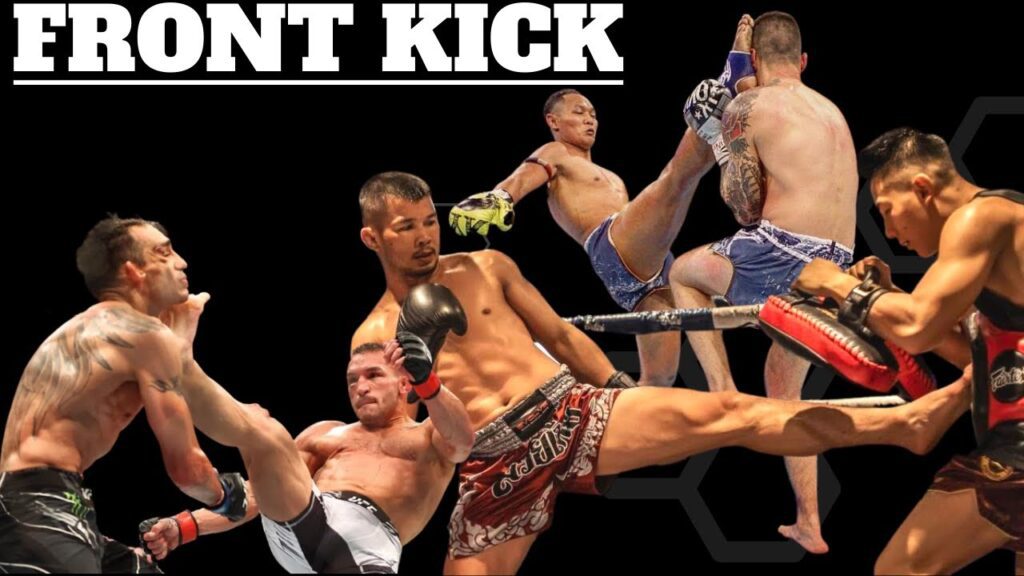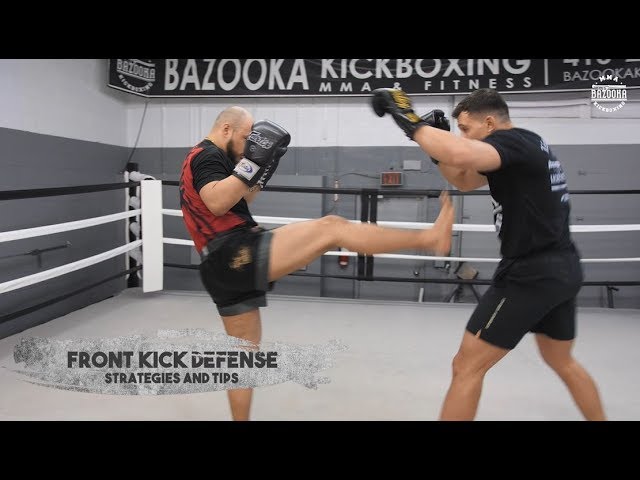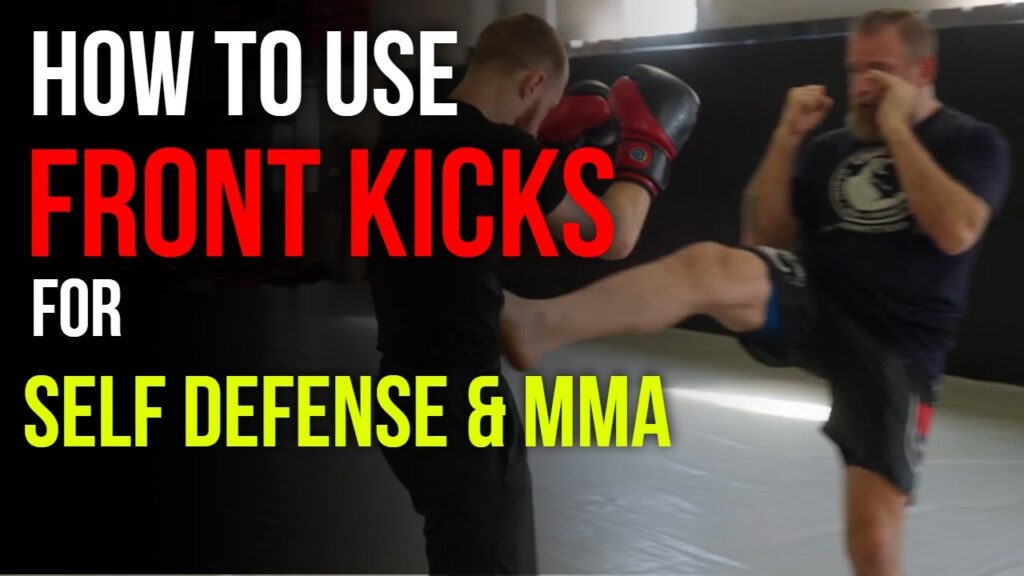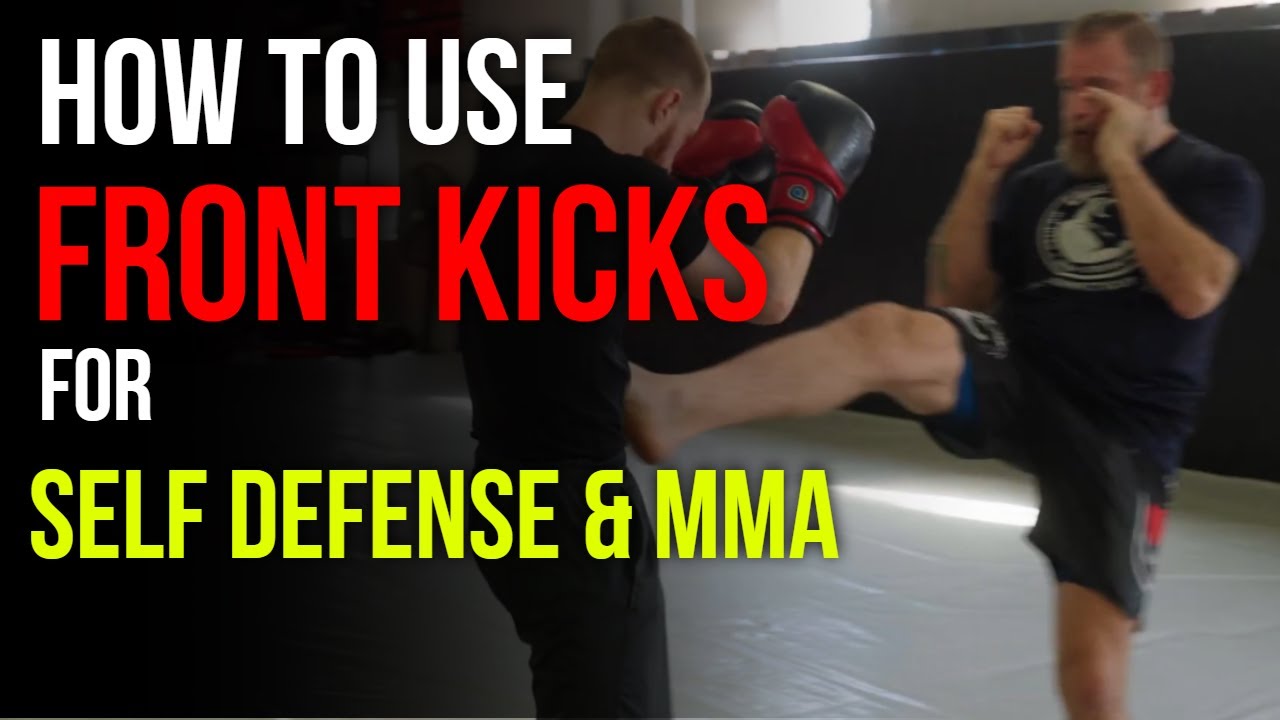In “Strategic Use Of The Front Kick In MMA,” you’ll discover the game-changing potential of a move often overlooked by many fighters. By exploring the strategic use of the front kick, you will learn how this dynamic strike can create distance, disrupt an opponent’s rhythm, and open up opportunities for powerful combinations. This article delves into various techniques and scenarios, providing insights that can elevate your MMA game to new heights. Whether you’re a seasoned fighter looking to refine your skills or a beginner eager to expand your arsenal, mastering the front kick can become your secret weapon in the ring. Have you ever watched an MMA fight and wondered why some fighters seem to effectively use front kicks while others barely utilize them at all? Welcome to the fascinating world of the front kick, a seemingly straightforward yet highly strategic move in mixed martial arts. By the end of this article, you’ll gain a comprehensive understanding of the front kick and its strategic use in MMA, helping to deepen your appreciation of its role in this dynamic sport.
Introduction to the Front Kick
The front kick, often underestimated, can be a game-changer in a fighter’s arsenal. Whether you’re a seasoned MMA enthusiast or just beginning to explore the sport, understanding the front kick’s strategic applications can deepen your insights into why and how fighters use this technique to maintain an edge.
What is a Front Kick?
A front kick is a powerful strike delivered with the ball of the foot, typically aimed at an opponent’s midsection, chest, or head. In some variations, the heel is used instead. It involves lifting the knee towards the chest before thrusting the foot forward, making it both a defensive and offensive weapon.
Historical Roots
Front kicks have roots in various martial arts, including Karate, Muay Thai, and Taekwondo, each contributing unique techniques and applications to the modern MMA front kick. Its adaptation in MMA reflects a blend of precision, power, and timing.
Mechanics of the Front Kick
Before diving into strategies, it’s important to understand the mechanics behind an effective front kick. Mastery of technique is essential for both delivering powerful strikes and ensuring your own safety during combat.
Basic Technique
The key to an effective front kick lies in proper form and execution:
- Stance: Start in your fighting stance with hands up for protection.
- Chambering: Lift your knee towards your chest, making sure to maintain balance.
- Extension: Thrust your foot forward, aiming at your target.
- Retraction: Quickly withdraw your leg back to your fighting stance.
Muscle Groups Involved
Executing a powerful front kick demands coordination of multiple muscle groups:
| Muscle Group | Function |
|---|---|
| Quadriceps | Extends the leg |
| Hamstrings | Aids in retracting the leg |
| Core | Provides stability and power |
| Calves | Ensures balance and supports thrust |
| Glutes | Assists in powering the kick |
Understanding these muscle groups can help tailor your training regimens to enhance the strength and effectiveness of your front kick.
Common Mistakes
Even experienced fighters can make errors in their front kick technique. Here are some common errors to watch out for:
- Poor Chambering: Not lifting the knee high enough can diminish power and reach.
- Leaning Back: Over-leaning reduces balance and telegraphs the kick.
- Slow Retraction: Failing to retract quickly can leave you vulnerable to counters.

Strategic Applications of Front Kicks
A front kick is more than a simple strike. It’s a versatile tool that can serve various strategic purposes throughout a fight.
Range Control
Front kicks are excellent for controlling distance between you and your opponent. By effectively using front kicks, you can maintain a safe range and dictate the pace of the fight, making it difficult for your opponent to close in.
Disrupting Rhythm
Front kicks can be used to break your opponent’s rhythm and timing, making it difficult for them to establish a flow. By interjecting a well-timed front kick, you can force your opponent to reset and rethink their strategy.
Setting Up Other Strikes
One of the most overlooked aspects of the front kick is its ability to set up other strikes. A well-placed front kick can lower your opponent’s guard, making them vulnerable to subsequent attacks like hooks, crosses, or even head kicks.
Defensive Utilization
Front kicks aren’t just for offense; they play a crucial role in defense as well. Incorporating defensive front kicks into your repertoire can significantly improve your overall game.
Creating Space
If you find yourself pressured against the cage or overwhelmed by your opponent’s aggression, a front kick can create the space you need to reset and regain control.
Disrupting Takedowns
Against grapplers who seek to take the fight to the ground, a front kick aimed at the hips or chest can disrupt takedown attempts, forcing them to reset their approach.
Defensive Positioning
Including front kicks in your defensive strategy can make opponents wary of closing the distance carelessly, as they risk getting caught by a powerful strike.

Training Your Front Kick
Perfecting your front kick requires focused training. Here are some drills and exercises to help you hone this versatile strike.
Drills for Precision
- Target Practice: Use hand pads or focus mitts to improve your accuracy.
- Shadow Kicking: Practice front kicks without a target to refine form and technique.
Drills for Power
- Bag Work: Heavy bags are perfect for developing power behind your front kick.
- Resistance Bands: Incorporating resistance bands can enhance muscle strength and explosive power.
Conditioning Exercises
| Exercise | Benefit |
|---|---|
| Squats | Strengthens quad and glute muscles |
| Planks | Enhances core stability |
| Calf Raises | Improves balance and leg strength |
| Standing Knee Raises | Mimics chambering for better form |
Advanced Strategies
Once you’ve mastered the basics, it’s time to delve into advanced strategies employing the front kick to outwit and outmaneuver your opponents.
Feints and Fakes
Using front kicks as feints can trick your opponent into reacting prematurely, opening up opportunities for other strikes or takedowns. A convincing fake can shift the momentum in your favor.
Combining Techniques
Blending your front kick with other techniques can create a seamless and unpredictable offensive strategy. For example:
- Front Kick to Overhand Right: A classic combination that exploits the opponent’s lowered guard.
- Double-Up on Kicks: Using a front kick followed by a roundhouse can catch your opponent off-guard.
Southpaw vs. Orthodox
Understanding the differences in using front kicks against southpaw or orthodox opponents can further fine-tune your strategy. Each stance offers unique angles and opportunities for executing front kicks.

Case Studies: Front Kick in Action
Examining real fights where the front kick has played a pivotal role can provide valuable insights into its effectiveness.
Anderson Silva vs. Vitor Belfort
In one of the most iconic uses of the front kick, Anderson Silva delivered a perfectly timed front kick to Vitor Belfort’s face, securing a knockout victory. This fight highlights the front kick’s potential as a fight-ending strike.
Lyoto Machida vs. Randy Couture
Lyoto Machida, known for his Karate background, utilized a front kick to knock out Randy Couture, showcasing the precision and timing required to execute such a powerful move.
Highlight Reels
Various fighters such as Jon Jones, Mirko Cro Cop, and Israel Adesanya have incorporated front kicks into their highlight reels, further underlining this technique’s versatility and efficacy.
Conclusion
Whether you’re a fighter looking to enhance your skill set or a fan seeking a deeper understanding of MMA, the strategic use of the front kick offers fascinating insights into the sport. From its basic mechanics and applications to advanced strategies and real-life case studies, the front kick is a testament to the blend of art and science that characterizes mixed martial arts.
So next time you watch an MMA fight, keep an eye out for the front kick. With a deeper appreciation of its strategic uses, you’ll find yourself enjoying the sport on a whole new level.


